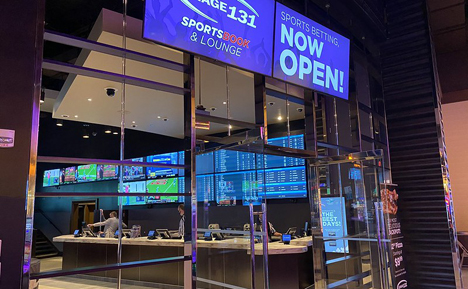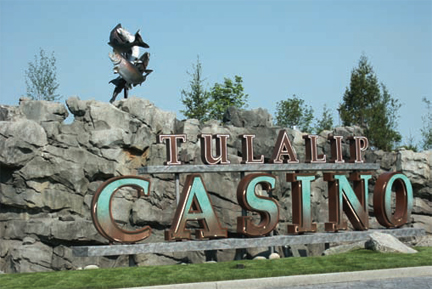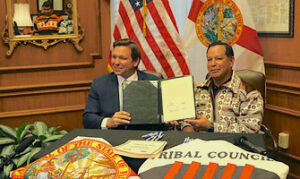
Since the repeal of PASPA (Professional and Amateur Sports Protection Act) in May 2018 through the Supreme Court decision in Murphy v. NCAA, United States markets have pushed forward to legalize sports betting.
Thirty U.S. jurisdictions have legalized sports betting and more than 22 of those are now operational. Many of the remaining states provide strong opportunities for tribal communities to take advantage of this expansion.
While opportunity abounds for tribes in sports betting, it’s about getting it right, not speed to market. One of the main reasons PASPA was overturned was because of states’ rights issues. Each state will take its own approach to how sports betting may fit into its existing gaming product. In some cases, sports betting might not be incorporated at all.
Just as each state is taking its own approach, so should tribal nations as they craft a market to meet the needs of their leadership and communities.
Many of the states still considering sports betting are dominated by tribal interests. These tribal communities and the states in which they operate are taking a thoughtful view to how sports betting will work best for their communities. It may be land-based only or also include mobile. But offering mobile wagering off-reservation brings different dynamics to the conversation. Commercial or government interests in the state add other dynamics on how to coordinate diverse interests.
Models to Road Maps
States that have already entered the sports betting arena can provide a potential blueprint to those in the middle of or starting those conversations.
New Mexico was the first state to move forward with tribal sports betting. Other states have since joined in, including Arizona, Iowa, Mississippi, New York, North Carolina, Oregon, South Dakota and Washington. As the first to market, the tribes of New Mexico relied on existing compact language, which allowed all forms of Class III gaming as its instant access point to the market.

Washington’s Tulalip Tribe will be the first tribe in that state to open a sportsbook after a united tribal effort kept sports betting in Indian Country.
One of the biggest issues facing tribes is to decide the method by which sports betting will work within their community and, to a larger extent, throughout the state. This may include a land-based-only model, with or without on-reservation mobile wagering. Tribes may have an interest in statewide mobile wagering, but challenges may exist in the market before this can occur. In-between models have been and continue to be considered. In some cases, the state lottery may want to be a stakeholder, as seen in jurisdictions such as Oregon. Commercial interests may come into play, as in South Dakota or the existing market in Mississippi that offer land-based options through tribal entities.
Washington provides a strong model for other states to follow. It took a proactive plan early after PASPA was repealed. Getting one tribe on the page to push forward with a singular concept can be a feat in itself. The task of getting several tribes in the same state on the same page is even more daunting.
Washington set out early, proceeding collectively to educate legislators on sports betting and why a tribal model was ideal for the Evergreen State. In the first-year post PASPA, some outsiders felt that the legislature was not pushing forward. But it was an educational year, to talk about why the tribes’ reservation-based model was the best one for the state and the communities that tribes support, both on and off the reservation.
While sports betting passed in the second year, Washington tribes faced strong opposition from the card-room entities that wanted a seat at the table. The card rooms went in heavy-handed in their effort and lost ground quickly with legislators. This stemmed from a lack of understanding, not only of the power that the tribes had within the state and the communities in which they operate, but also how they dealt with the legislature. Rule one in lobbying any bill is never to insult, argue or heavy-hand a member of the body; the card rooms failed on all of those efforts.
Also, the regulatory structure for card rooms, like those in California, is not at the same level as that of the tribes and does not work with the state’s Gambling Commission.
Sports betting is still getting ready to launch in Washington, demonstrating to tribes elsewhere that it may take a couple of years to get it across the finish line. Education is the key component from the start, and here tribes can both individually and collectively lead the conversation with stakeholders that, first and foremost, may not be familiar with their contributions to the community.
First, the tribes in Washington educated themselves to get up to speed on the best model for them—a reservation-based focus—then proactively communicated that message to get sports betting across the finish line legislatively.
Tribal-Commercial Combo
Michigan provides another strong example of tribes jumping into the sports-betting market. The combination of tribal and commercial casino interests caused an interesting dynamic on how sports betting could coexist between these two entities.
In what’s viewed as model legislation, leaders in the Michigan legislature worked through the differences to offer mobile sports betting statewide to all stakeholders. This required tribes to work through issues with the Indian Gaming Regulatory Act (IGRA) for what can be approved on-reservation as well as how they would interact with the state for wagers being placed off-reservation and how payments would occur to the state.
Due to the leadership of the tribes, the commercial casinos and the sponsors of the bill, Michigan became a model that allows all parties to compete effectively. While the tribal communities had their own paths to determine their best solutions to operate sports betting, it allowed those regulated entities to work together to craft a sports betting market that continues to generate strong revenue for both the state and for the operators in the market.
Tribes have taken the approach of either partnering with a specific operator—such as DraftKings’ partnership with Bay Mills Casino—or branding a sports-betting operation based on their casino brand, as seen with Firekeepers. Both provide examples to other tribes on how to either work with a partner or forge their own path.
Picking the Right Dance Partner

Florida Governor Ron DeSantis signed a compact with Seminole Chairman Marcellus Osceola Jr. to bring sports betting controlled by the Seminoles to the Sunshine State.
After tribal communities determine the best path forward, picking the best operational model is key. Any deal will have to go through approval with IGRA, which needs to be considered early in the process to work through the terms of any deal on sports betting. It’s vital to ensure the deal that is struck is one that has the best terms for the long-term path for the tribe, the current and future market and the potential partner.
The three buckets that typically exist are the outside partnership, in which the operator of the sportsbook assumes all the risk; the tribe operating its own sportsbook; or a hybrid of these models.
Many tribes are going through an RFP process to consider a wider range of options for the best opportunity to proceed forward, and this can help sway the decision into one of the three buckets above. This process allows the tribal community to determine its best partner, as well as compare different methods of operation.
Most importantly, it lets tribes craft the best opportunity for their communities to press forward with sports betting in terms of revenue, operations and, most importantly, the fit to their current framework and potential partnership. It’s important in any partnership that an outside sports betting operator understand the dynamics of the tribal community and its current operations.
Other Tribal Scenarios
Two states provide other scenarios for tribes: California and Florida.
It’s well-documented that any gaming decisions in Florida run through Hollywood (Florida), and to a lesser extent, Orlando (because of Disney), before they run through Tallahassee.
The same can be said in California, which has for years faced challenges when tribal communities are not on board with a concept or included properly in the discussion. This happened last year with the legislature, when some stakeholders tried to circumvent the tribes with their own version of a sports-betting draft. California’s tribes have since come together with a ballot measure to go before voters for a tribal-controlled, reservation-based sports betting model. The lesson for outside groups is that tribal communities’ political clout should not be underestimated. Online gaming in the California market also failed 10 years ago due to opposition from tribal communities.
Most of the remaining states continue to debate how to craft the ideal sports-betting market. As sports betting continues to evolve, other players in the market are trying to add to the conversation as well, including sports teams that believe they should be represented, as was the case with the recent passage of legislation in Arizona.
While this model still needs to be operationalized and brought to market, some stakeholders question why the tribes did not have equal standing in the number of licenses between sports teams and the number of tribes for statewide mobile access.
While major tribal states like Minnesota, Wisconsin, Oklahoma and others are still working their way into the sports betting space, the table is set for a strong push for tribal sports betting in the next round of legal states. Tribes are looking out for their best interests, first agreeing within their own communities, then working with their partners to craft the best market for them.
As has been said before, in any form of gaming expansion, there’s one chance to do it right. Sports betting is the current push forward, and tribes have every right to develop the best opportunity to get it right out of the gate.






